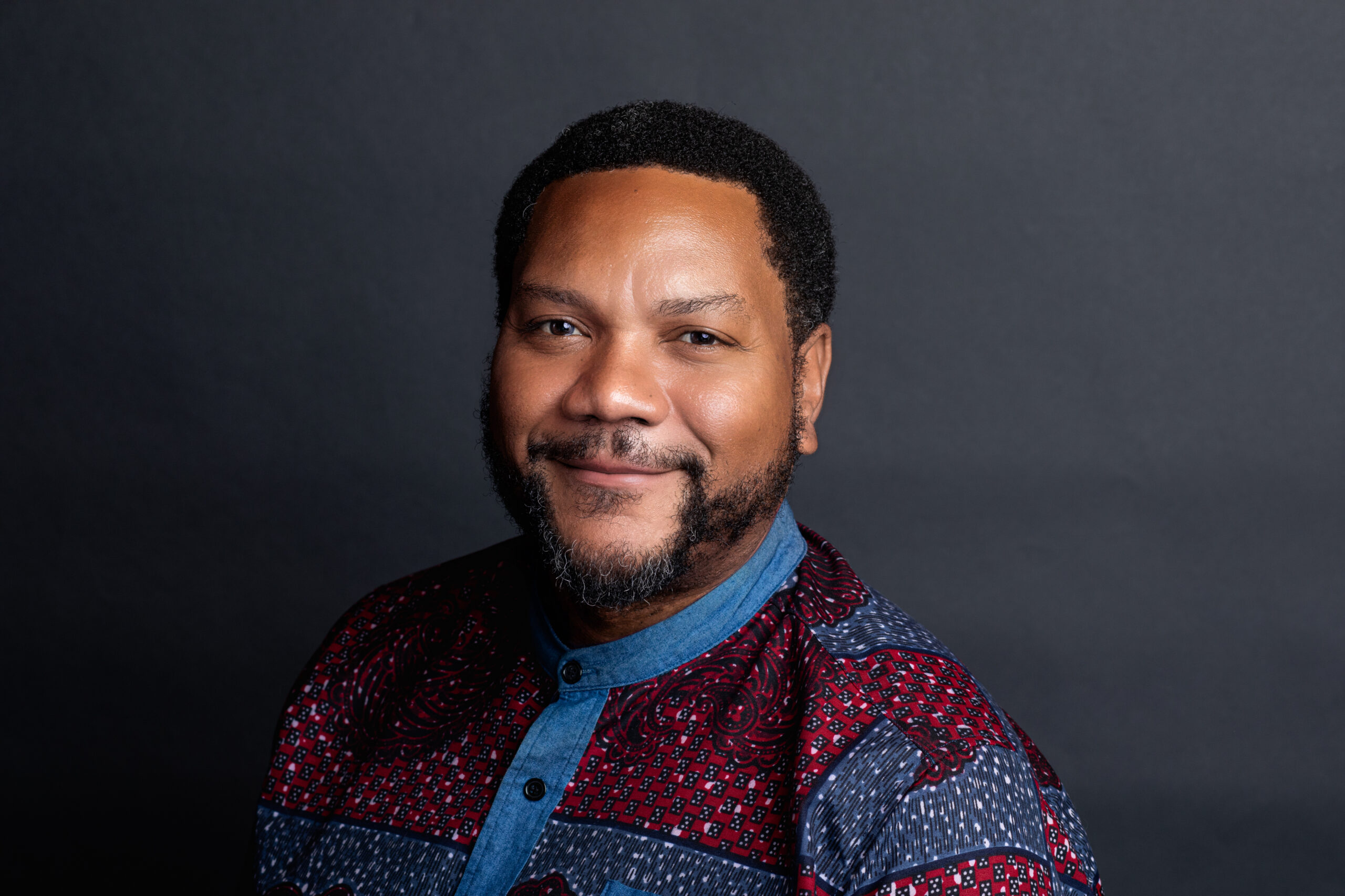J. Jioni Palmer, Contributing Writer
I am a creator. A creator leaves a part of themselves in all of their creations. Regardless of the creation, the very act of bringing something into being is an act of association that forever connects the creator to not only the creation but also all who encounter it. I create as a son, husband, father, friend, chef, leader, seminarian, writer, photographer, and coach—to name a few. I am all of those at once; they are interconnected and entwined. Even when I’m being one, I bring all that I am.
I consider myself a person of African descent, which places me as a child of the African diaspora resulting from the Transatlantic slave trade. I also identify as Black and African American because they are expressions of my cultural, political, and social location as a person of African descent in America.
I grew up attending Bethlehem Lutheran Church in West Oakland—a Black church in a predominately white denomination. My childhood pastor was Will Herzfeld, a fiery preacher steeped in liberation theology and a leader in the schism that resulted in the formation of the Evangelical Lutheran Church of America out of the Missouri Synod. From him, I learned that Jesus was a radical opponent of oppression and marginalization who challenged his time’s power structure and inequalities. There was no doubt where and with whom Jesus stood on ending apartheid or #Black Lives Matter. However, in adulthood, many Christians I encountered practiced a foreign faith. Merely accepting Jesus’ sacrifice on Mount Calvary and asking for his forgiveness of sins was the sum total of what it meant to be a Christian. Certainly, it was expected to live a Christ-like life, doing good deeds, practicing charity, avoiding backbiting, and obeying parents. However, that was all that was required.
I also grew up during the Golden Age of Hip Hop, a time when I learned a lot about Christianity, Islam, and African religious and spiritual traditions. This era, with its powerful music and thought-provoking lyrics, significantly shaped my understanding of these belief systems. One of my favorite rappers from this time—and of all time—is KRS-One (Knowledge Reigns Supreme Over Nearly Everyone). As he is known in hip-hop circles, the teacher commented on what I learned in church. One of my favorite tracks of his is “The Truth,” which challenges the listener to think about Jesus within the context of being a social and political figure and what that means for us today:
“Listen to the lyric as the negative is shrinkin’
It’s shrinkin’ out your life when you decide to change your thinkin’
One of the first things we gotta switch around of course
Is Jesus Christ, and him dying on the cross
You’re looking at the cross, surrounded in it’s mystery
With Jesus on the cross in a, total misery
Now separate Jesus from the cross so you can see
The truth about the cross, and the cross’s history
The cross was created by the Roman government
It’s only purpose and use, is cap-I-tal punishment
But Jesus Christ, was all about the revolution
While the cross was used as Jesus Christ’s execution
See what if Jesus Christ, was hung upon a tree
Upon every church wall, that’s exactly what you’d see
If Jesus Christ, was shot in the head with no respect
We’d all have little gold guns around our neck
If Jesus Christ was killed in electric chair, now get it
You’d be knealing to the electric chair with Jesus, still in it
You gaze upon the cross, and you see the execution
You yell stop the violence but the cross you’re still using”
The fabric of my life is a pattern that tells a different story depending on the thread examined. I am the only child of a single mother who worked tirelessly to provide for us. Against the backdrop of societal challenges, I witnessed mymother’s perseverance as she pursued her education, finally receiving her bachelor’s degree when I was a college freshman and a Master’s of Social Work four years later. Her journey is a testament to the power of resilience and determination.
I am the son of a father who didn’t meet his own until he was 22 after growing up physically abused by his stepfather, who quit college to “become a man” in the Vietnam-era Army. For the next 25 years, he traveled the globe,seeing his only son thrice. He married four times in a quarter century but obtained his bachelor’s, law degree, and a Master’s of Social Work in his 30s.
Additionally, I was raised by a Nigerian stepdad whose father died in the Biafran War. As his son, I was immersed in Igbo culture and the richness of the African Diaspora, from spiritual expressions to culinary traditions.
Each vignette tells a separate story about my parents and me. Their imprinting—positively and negatively—lay the foundational narratives.





